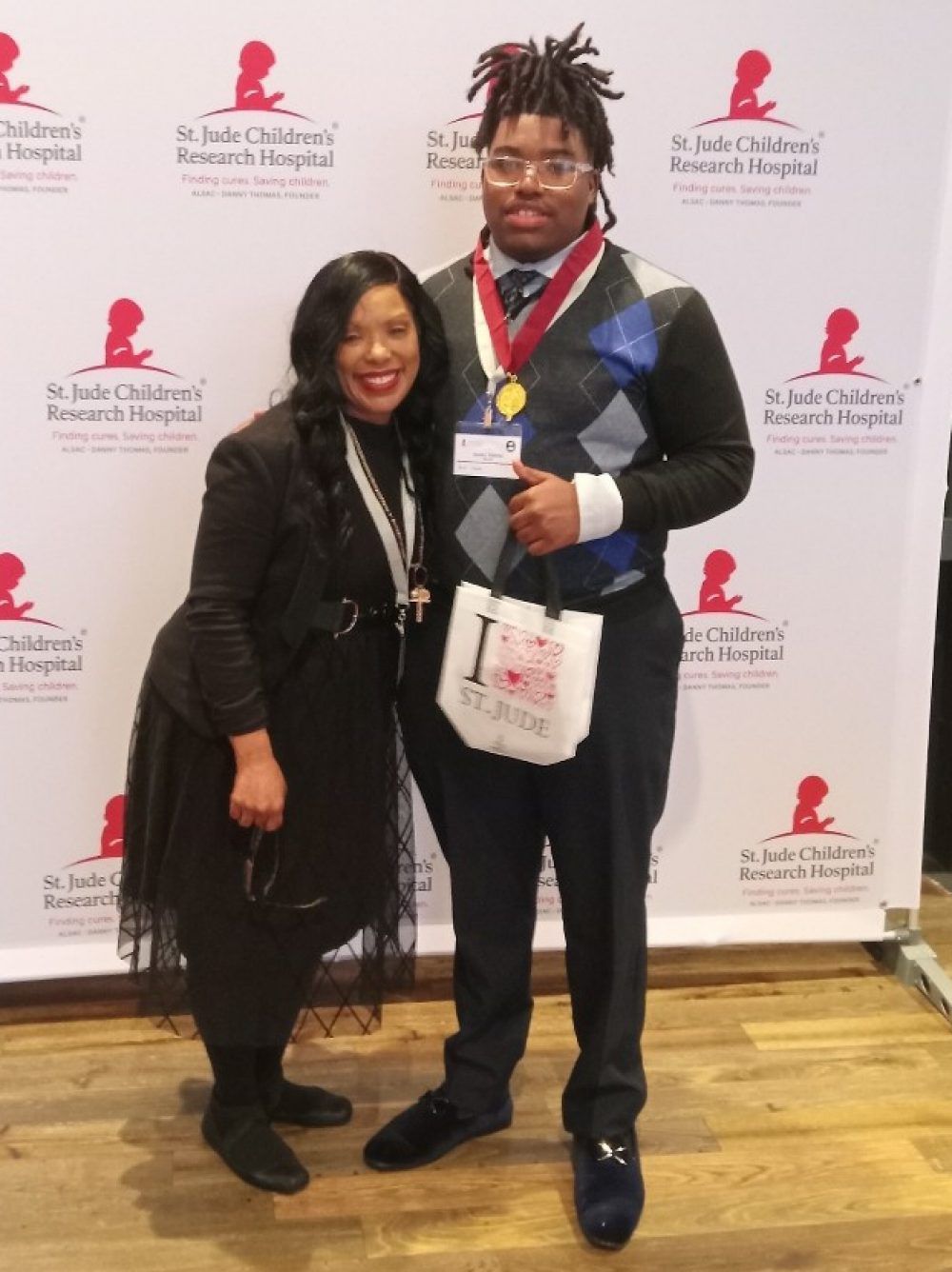St. Jude Family of Websites
Explore our cutting edge research, world-class patient care, career opportunities and more.
St. Jude Children's Research Hospital Home

- Fundraising
The St. Jude School Program
The St. Jude school program, known as St. Jude Imagine Academy by Chili’s, is part of your child's care team. We help make sure patients have what they need to do well in school. We also advocate for what will help them succeed.

Education is an important part of any child’s life. We encourage our patients to get back to school as soon as possible for the following reasons:
- It is a normal childhood activity.
- It increases your child's sense of well-being.
- It reassures your child about the future.
- It helps your child maintain social relationships.

“When I think about all that he’s been through, an academic success like that made my heart so happy and full."
– Jacquelyn Johnson
Services we provide
Many patients can keep going to school after diagnosis and during treatment. These patients may need accommodations or other services to help them succeed.
Sometimes patients need to be away from school for a long time. These patients may need help keeping up with their classwork.
The St. Jude Imagine Academy by Chili’s staff can help patients with their education. We offer a variety of services to help meet your child’s needs. We deliver these services through 3 main programs:
Cognia, an educational non-profit, has accredited the St. Jude School Program as a Special Purpose School. Our teachers help patients staying at St. Jude long-term. These teachers instruct patients from preschool through grade 12.
School advocacy coordinators provide school reintegration and advocacy services. They work with patients from preschool to college.
The St. Jude Imagine Academy by Chili’s is open year-round. Teachers and school advocacy coordinators are available at scheduled times. You can contact the school program to schedule an initial consult. Your child’s clinic can also schedule this for you.
Patients enrolled in the school program can get up to 3 hours of instruction each week. We encourage patients to use books and assignments from their home schools. Your child’s school can send these items to St. Jude by fax, mail, or email. We provide our own materials if your child’s home school cannot provide them, or if the materials are needed to meet your child’s educational needs.
The St. Jude Imagine Academy by Chili’s
St. Jude Children’s Research Hospital
MS 152, Room BP099
262 Danny Thomas Place
Memphis, TN 38105-3678
Phone: 901-595-1783
Fax: 901-595-8718
schooladministration@stjude.org